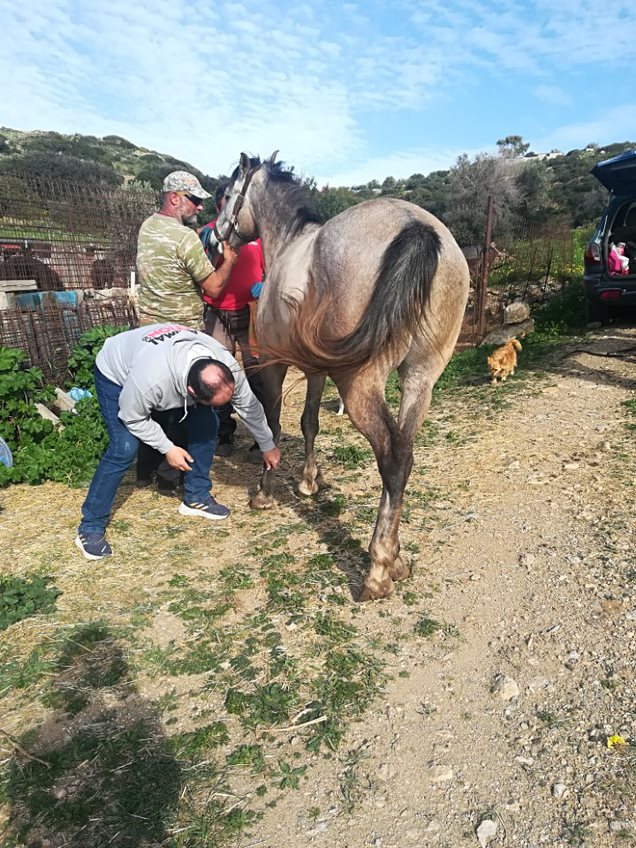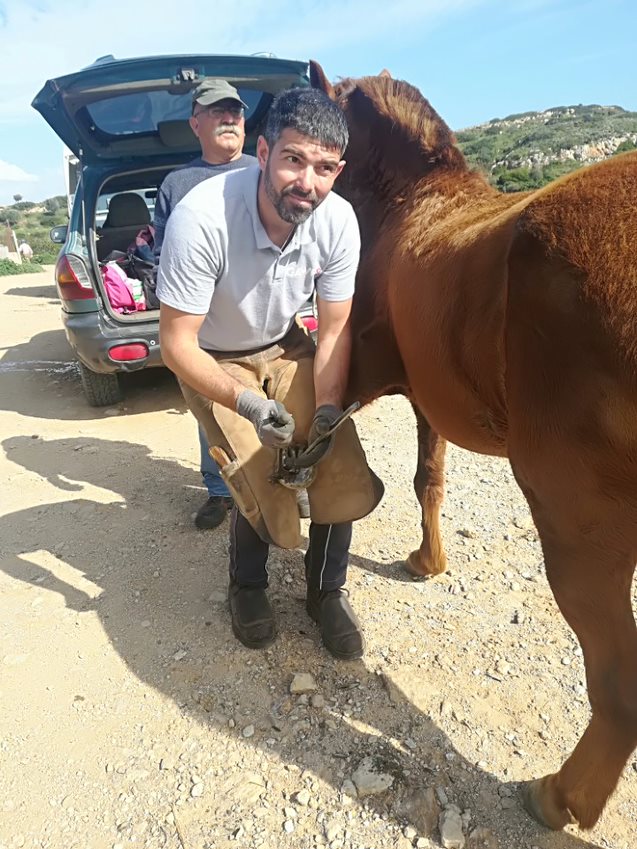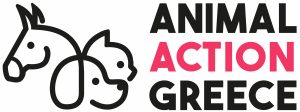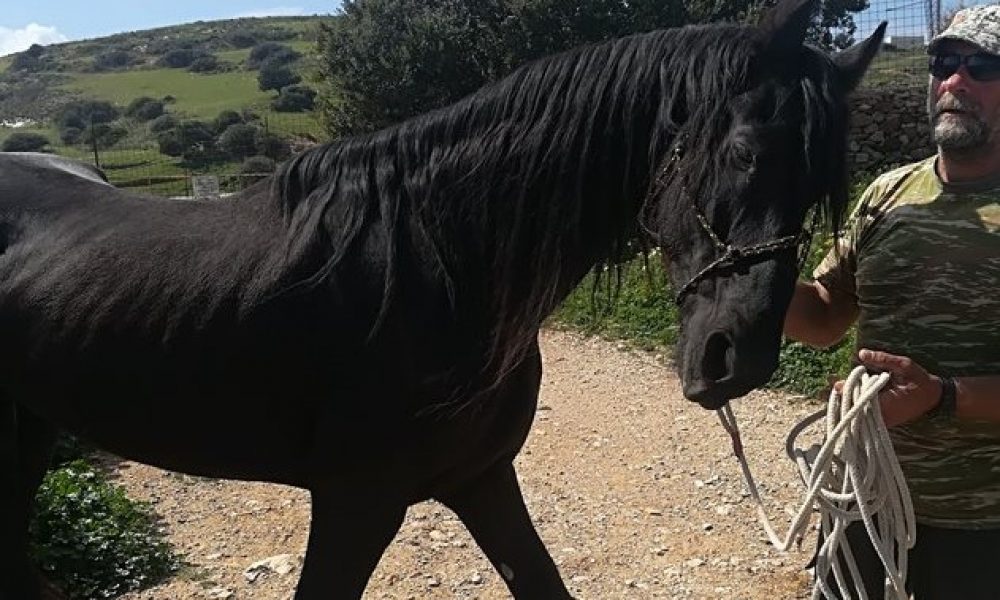On 12-13th March, our Equine Outreach team have had a busy spring, heading out to the island of Lipsi in the Dodecanese, to treat 22 equines, mainly used for leisure, but also for tourism and working purposes.
Lipsi is a small island in a remote location, remaining unnoticed by mass tourism and preserving its unspoiled, natural landscape and traditional character. Lipsi’s residents earn their living from fishing, agriculture, winemaking, production of olives – olive oil, thyme honey and cereals, animal husbandry (production of local cheeses), trade and tourism.
The visit had originally been planned in connection with a visit to Leros and Patmos; but the extreme weather conditions and high winds unfortunately meant boats were not leaving for the other islands. The animals on Lipsi were mostly young and in good body condition, but due to the lack of equine dental technician, as in any remote area we visit, almost all required a dental examination by our dental technician and the floating of dental sharp edges which are created over time, as well as the rasping down of hooks, that are created due to misalignment of the jaws. These hooks not only interfere with chewing, but also cause behaviour issues during riding, such as head tossing and not turning or stopping as they should, due to pain.
As usual in these remote regions, many animals had problems such as overgrown hooves, white line disease and thrush on their soles, which were treated by our farrier. We encountered a serious problem in a Friesian stallion horse, which for months had an abscess with a fistula at the pharynx, two smaller fistulas and his tongue also had a deep scar from an earlier injury, which made chewing difficult. The case had already been dealt with by the veterinarian of Leros, after telephone advice from the equine vet and Professor of Equine Medicine at the Veterinary University of Thessaloniki. The fistula improved markedly with the correctly advised applied therapeutic treatment, but reappeared after the end of the treatment. During the examination of the oral cavity, awns that were stuck in the soft tissue were removed and dental treatment was offered, the area was cleaned by the veterinarians and soft food was recommended for a few days. Just recently, after contact with the local vet, we were informed that the problem has now been completely treated, showing that the dental care, which resulted in normal sideways chewing, must have helped the retropharyngeal abscess not to reappear.
Our team also took blood samples from all the equines, along with samples taken from the equines of Karpathos on our recent visit, which were handed over to Michalis Kontrafouris, veterinarian of Leros and neighboring islands, as part of his collaboration with a laboratory of Thessaloniki, conducting scientific research on equine diseases in the wider region of the Dodecanese islands. We are always happy to play a role in such research gathering information on the type of diseases in different areas of Greece.
We would like to thank the horse owners who offered meals and accommodation of our team in Lipsi; and our thanks especially to Michalis Kontrafouris, veterinarian of Leros and other islands, who contributed the most to our team’s work and organising the visit.








